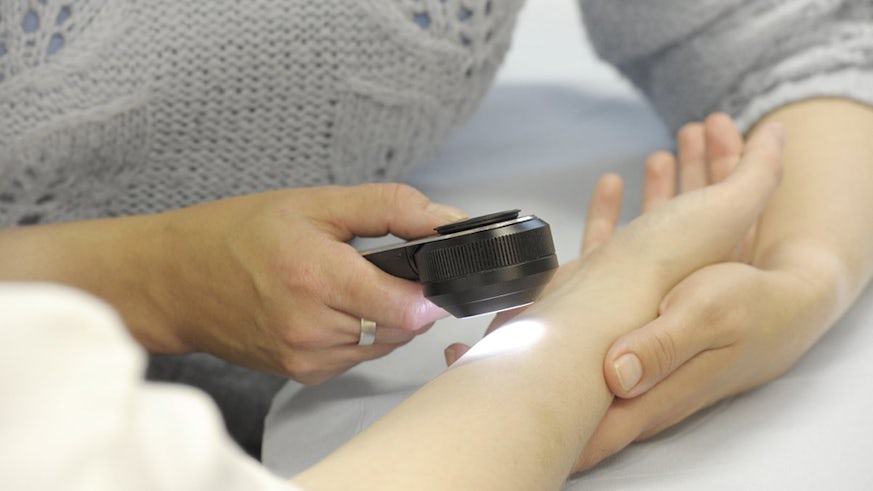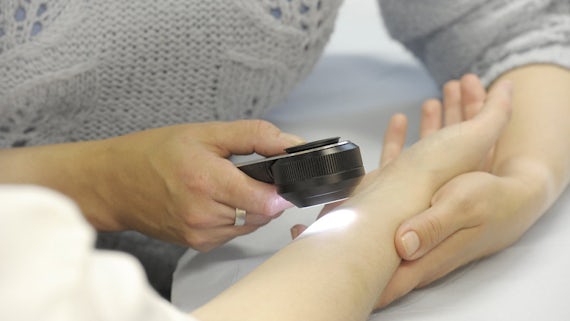Excellent feedback for Dermoscopy taster session developed for local Health Board
22 January 2021

The School of Medicine have delivered a full-day online taster session of their highly regarded Introduction to Dermoscopy programme to a team of GPs at a local health board.
The taster course was initially due to run face-to-face in March 2020, however due to the pandemic and availability of delegates (many of whom are frontline NHS workers), this was delayed and converted to online provision.
The University has a rich history of training medical professionals in Dermatology. The Introduction to Dermoscopy programme is consistently well evaluated and respected, and has run twice-annually for a number of years. The University also a Practical Diploma in Dermatology, and modules from the Postgraduate programmes of study are also available to study on a standalone basis. This flexible study option supports workplace skills and career progression, whilst enabling staff to manage their work-life balance.
About the course
Dermosocopy is a non-invasive, widely used diagnostic tool that aids the diagnosis of skin lesions and is proven to increase the accuracy of melanoma diagnosis. This half day session aimed to give delegates a firm grounding in the principles of Dermoscopy, covering topics such as:
- The principles of Dermoscopy, and its uses in primary care
- Correct use of a dermatoscope
- How to recognise features of common benign conditions such as seborrheic keratoses, warts, angiomas, dermatofibromas, sebaceous hyperplasia, comedones and benign moles
- How to recognise the features of Common pre-malignant lesions such as actinic keratoses
- How to recognise the features of malignant conditions such as basal cell carcinoma and malignant melanoma.
Feedback
We surveyed delegates prior to and post attendance at the Dermoscopy taster session. The improvement was excellent, with all delegates reporting that their knowledge and ability levels rose from poor to good / excellent.
We asked delegates about their knowledge and abilities in a range of conditions such as assessment of colour, symmetry, patterns and blood vessels and confidence in using a dermatoscope. In this example, 58% of delegates said their knowledge prior to the course was poor or not good, and after the course, 100% reported that their knowledge was good to excellent.
- 50% of delegates reported content will aid their job significantly
- The other 50% of delegates reported content will aid their job in some way
- 100% of delegates rated trainer knowledge & delivery as excellent
The following is a selection of feedback from the delegates, telling us which parts of the course were the most useful for their ongoing practice:
The entire course was excellent from start to finish.
Understanding the dermoscopic assessment of a lesion and knowing what to look for in a methodical way.
Having an introduction to this was very useful as I'd like to be able to use a dermatoscope in surgery.
A clear introduction in how to approach viewing lesions through a dermatoscope.
The entire course was excellent from start to finish.
To understand the features of common lesions seen in the clinic on a daily basis.
If you'd like to find out more about the full Introduction to Dermoscopy programme, visit the course page where you'll find more details about the content and other key information.
To find out more about how the CPD Unit could help your organisation, whether it's creating a bespoke programme or arranging a closed version of one of our existing courses, please contact us:

